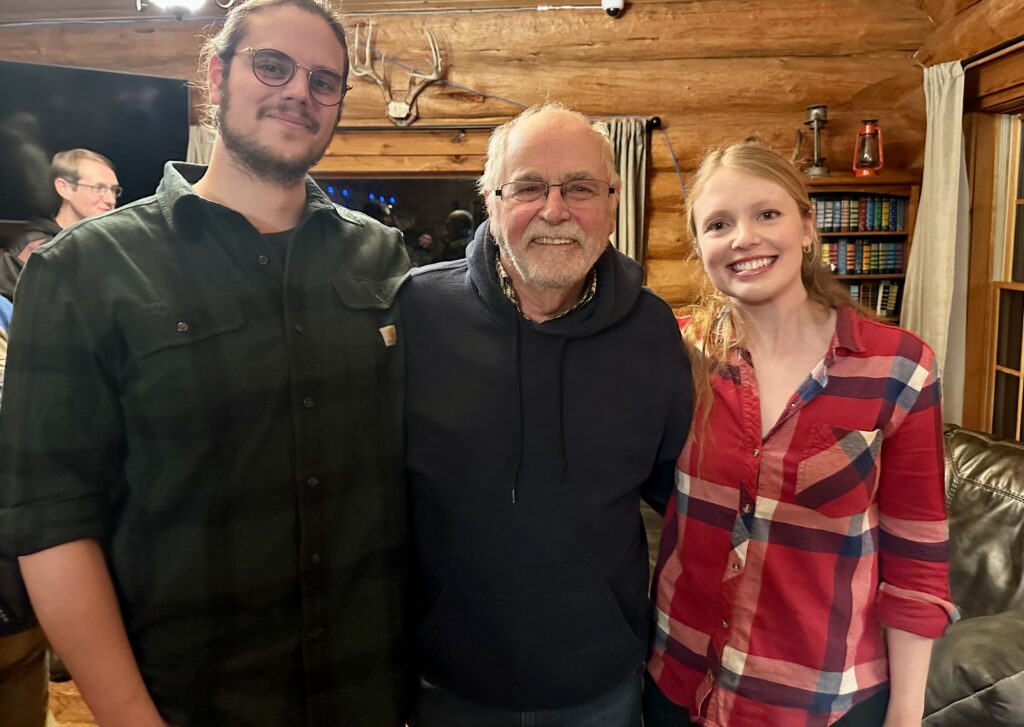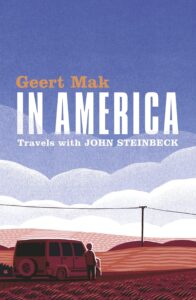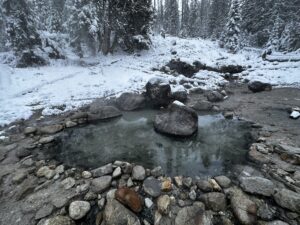
Seeing America through the eyes of a thoughtful and observant foreigner is one of the best mirrors we can look through to study ourselves and our habits of the heart. Although it seems true that basic human nature is about the same in all places and at all times, we can recognize ourselves in the ancient Syria of Gilgamesh or modern Haiti, in the Soviet Union of 1962 (during the Cuban Missile Crisis). It is equally true that different nations or tribes organize their economies and social structure, their daily rituals and habits, in ways that are quite distinct. Most people in London make their way to work through one of the best public transport systems in the world, while most people in America drive to work and often pay exorbitant parking prices. The people of Bordeaux can only install a window air conditioner if they get a permit from the appropriate regulatory agency. In contrast, if you tried to regulate window air conditioners in America, you would get the same response as when the CDC asked all Americans to wear masks during the height of the Covid-19 pandemic.
The best book ever written about America by a foreigner is Alexis de Tocqueville’s Democracy in America (published in 1835). I intend to reread it before I take to the open road sometime after the thaw. (As I write this today, in the lobby of a motel in Missoula, Montana, the temperature is minus 16 degrees Fahrenheit, plus strong winds. The spring thaw seems well down the road. Theodore Roosevelt, who spent a couple of winters in the Dakota Territory in the 1880s, called this the “season of iron desolation.”)

A decade or so ago, the Dutch journalist Geert Mak followed John Steinbeck’s 1960 Travels with Charley circuit around the perimeter of the United States and wrote what I regard as the best of the dozen or so Steinbeck retracing books, In America: Travels with John Steinbeck (2014). Mak’s book is superior to all the other retracing books because he genuinely attempted to make sense of the richness and complexity of American life in a way that Steinbeck, who was creatively tired by 1960, admitted he had failed to accomplish. Mak uses Steinbeck’s journey as a framework to give himself opportunities to wrestle with the diversity and perplexity of the American scene. Other retracers seem more interested in the “feat” of “dogging Steinbeck,” as one of them puts it, than in emphasizing Steinbeck’s subtitle (and purpose), Travels with Charley in Search of America.
My daughter Catherine, now living in Great Britain, brought her boyfriend Simon to America for the holidays. He’s French-Swiss. French was his first language, and now, of course, he puts us monolingual colonialist Americans to shame — he has French, German, English, some Italian, and Old English. He’s finishing up a doctorate in English literature at Oxford University. Simon has a good mixed and nuanced attitude towards America. We traveled by automobile while he was here. More than 1,000 miles through the heart of Montana (and then Idaho). I enjoyed seeing America through his eyes. There are no mass shootings in Switzerland. There is no student loan debt in Switzerland. There is outstanding cradle-to-grave health care in Switzerland. There is no widespread poverty there. Television commercials do not dominate the programming. And lest you think he is some Euro-snob who thrives by pointing out the faults of America, Simon finds much to love here, especially in the outback, and is not afraid to talk about those parts of Swiss life he isn’t particularly proud of.
Of course, being Swiss, he is a cheese snob. We did manage to sneak some Velveeta into his food supply here in hopes of breaking his spirit.
We drove from Bismarck to Bozeman, Montana, overnighted, then to Missoula and up into the Bitterroot Mountains. Every few miles along the Yellowstone River, which interweaves I-94 and then I-90, Simon spoke ecstatically about the landscape — the subtle grays and rust and wan yellow of the winter grasslands, the astonishing blue cast of the river against the surrounding countryside, an eagle perched up in a barren tree, the quality, and the clarity of the light, the vast and open plain in every direction. My daughter is a child of the Great Plains, and she loves them, but over several decades, she has come, naturally, to take them somewhat for granted. But for her mate, the sheer size, the emptiness, the big sky, and how the West is still minimally compromised by industrial intrusion are a kind of revelation and a reassurance. The philosopher John Locke said, “In the beginning, all the world was America,” and in America, to this day, there are vast stretches that at least echo the Serengeti, the primordial wilderness that once was the New World.
Lochsa Lodge
We spent two nights at Lochsa Lodge, about 70 miles west of Missoula. It’s my favorite resort in America, in part because the enlightened owners, Reuben and Matt, have not attempted to make it Aspen or Sedona or Telluride or Jackson Hole. Locsha Lodge has all the needed amenities (plus good food), but it retains a slightly retro feel as if the ideal lodge of 1952 were locked in timelessness. One morning, while we were there, one of the waiters casually reported that she had seen a mountain lion while walking down to the lodge. Another employee reported that a small pack of wolves were camped not far south of the Lochsa River.
On Catherine and Simon’s last day in the United States (for a long while), we were lazing about the lodge, drinking coffee and tea. Off and on, they were packing their bulging Christmas suitcases in a desultory way. Lovely light snow cascaded down onto the cluster of log cabins, loading the giant evergreens with precarious swatches of snow that bent their 150-year-old branches. The sun was shining in the West. Suddenly, I said, “Get your coats on; we’re going to the hot springs.”
Jerry Johnson Hot Springs are located about 20 miles west of the lodge. I’ve been to them several dozen times over the years, sometimes in the summer, more often in the winter. You park in a small clear space just off US12, then hike up about 3/4 of a mile to five or six perfect hot pools, a couple of them within 3 feet of Warm Springs Creek.
Catherine could have been more eager to make the journey. She has been there before. The lodge was very cozy. She was lamenting that their time in America was ending. The next day would require at least three flights, possibly five before they arrived at Heathrow Airport in London, and then they would take a late coach back to the heart of Oxford.
But I insisted. Catherine later admitted that she had attempted an “implied veto” of the excursion, but Simon and I shamed her into the car.
It’s about a 30-minute hike from the parking lot to the hot springs, with two steep bits, which you must climb carefully in the winter, lest the underlying ice trip you over the edge. But we made the ascent without incident. We removed our outer clothes and settled into the pool closest to the river.

Let me paint the scene. You are up in the Bitterroot Mountains, about 3,200 feet above sea level. The pools are warm, not hot, but if you find the right spot, you sit over one of the heat vents from far below, and you luxuriate in pure sensual satisfaction. The pools are deep enough to immerse all but your head if you lean back on one of the rocks that form the perimeter. There are thousands of giant trees — cedar, tamarack, Douglas fir — in every direction, running up and down the rounded mountains. Little drifts of snow sit in all of their branches. Occasionally, a breeze finds its way through the scene. Then, the very tops of the trees, slender, elegant, and fragile looking, sway imperceptibly in a mesmerizing way. Sometimes, you wonder if they are moving just a few inches high in the sky or if you are imagining the motion; it is so subtle. The breeze loosens delicate cascades of snow that drift down to the ground with a light crystalline sound. Not 10 feet away, the creek runs too deep to ford even in the summer, over round rocks the size of basketballs and beachballs. Snow accumulates on the rocks until a surge of the creek sweeps it away.
It is utterly silent, the silence you can only experience deep in the woods.
If you dialed up God or Nature and asked for a perfect mountain hot spring in America, you’d get Jerry Johnson. We all owe unlimited praise to Theodore Roosevelt and the U.S. Forest Service.
I looked over at Simon, our Swiss guest. He wore a look of deep serenity, satisfaction, but also a sense of wonderment. He has lived a quarter of a century and has been to America twice before, but never quite like this. His intense satisfaction had leavened my daughter’s experience, and mine.
There we were, three, on a perfect day in a perfect place and, for the moment, in perfect harmony with ourselves, each other, and the universe.
Through all of this, I was trying to see America through Simon’s eyes. And my daughter’s, whose vision of life has been deepened, widened, and lifted by her association with an extraordinary person of another culture.
Up there, with them, alone in the great outback, I fell in love with America all over again. Think of the unbelievable potency of that word: America. For all that the rest of the world is disillusioned with us — usually for good reason — the word “America” still has global magic. America the first modern republic. America with its Bill of Rights. America the land of unprecedented economic opportunity. America with its stunning (if unreachable) ideals: “We hold these truths to be self-evident, that all men [human beings] are created equal.” America with several of the world’s greatest rivers: the Colorado, the Columbia, the Missouri, and the Mississippi, which drains one of the greatest agricultural valleys of the planet. America with the Grand Canyon, Canyon de Chelly, Yosemite, the redwoods, the Grand Tetons, Yellowstone National Park, Death Valley, the Golden Gate Bridge, Hoover Dam, the Chrysler Building, Las Vegas, Gettysburg, the Little Bighorn …
America. AMERICA. At times Amerika.
As I sat in that perfect pool trying to take it all in, I thought: what must it be to be a European having this experience? This place, this sort of place, is one of the very most remarkable things about America. Somehow, we have managed to leave some of the continent alone. Somehow, we have left some patches of the primordial in our midst. Somehow, we have managed to save some of the best of America for seed. Wallace Stegner said we Americans must create a “society to match the scenery.” In many respects, we have failed to build that civilization. There is still time.
Let there still be time! Please, let us reinvigorate America until it is as glorious as the continental stage on which we have erected American civilization.
Now Simon and Catherine are back at one of the world’s most outstanding universities, founded 200 years before Columbus bumbled into the Western Hemisphere. Sometime later this spring, with his thesis deadline leaning on him like an NFL halfback, he’ll look up from his screen deep into the middle of the night and remember lounging in Jerry Johnson Hot Springs with his lady love. No matter what happens to their romance hereafter, they will always have that afternoon in the Rocky Mountains of America.
